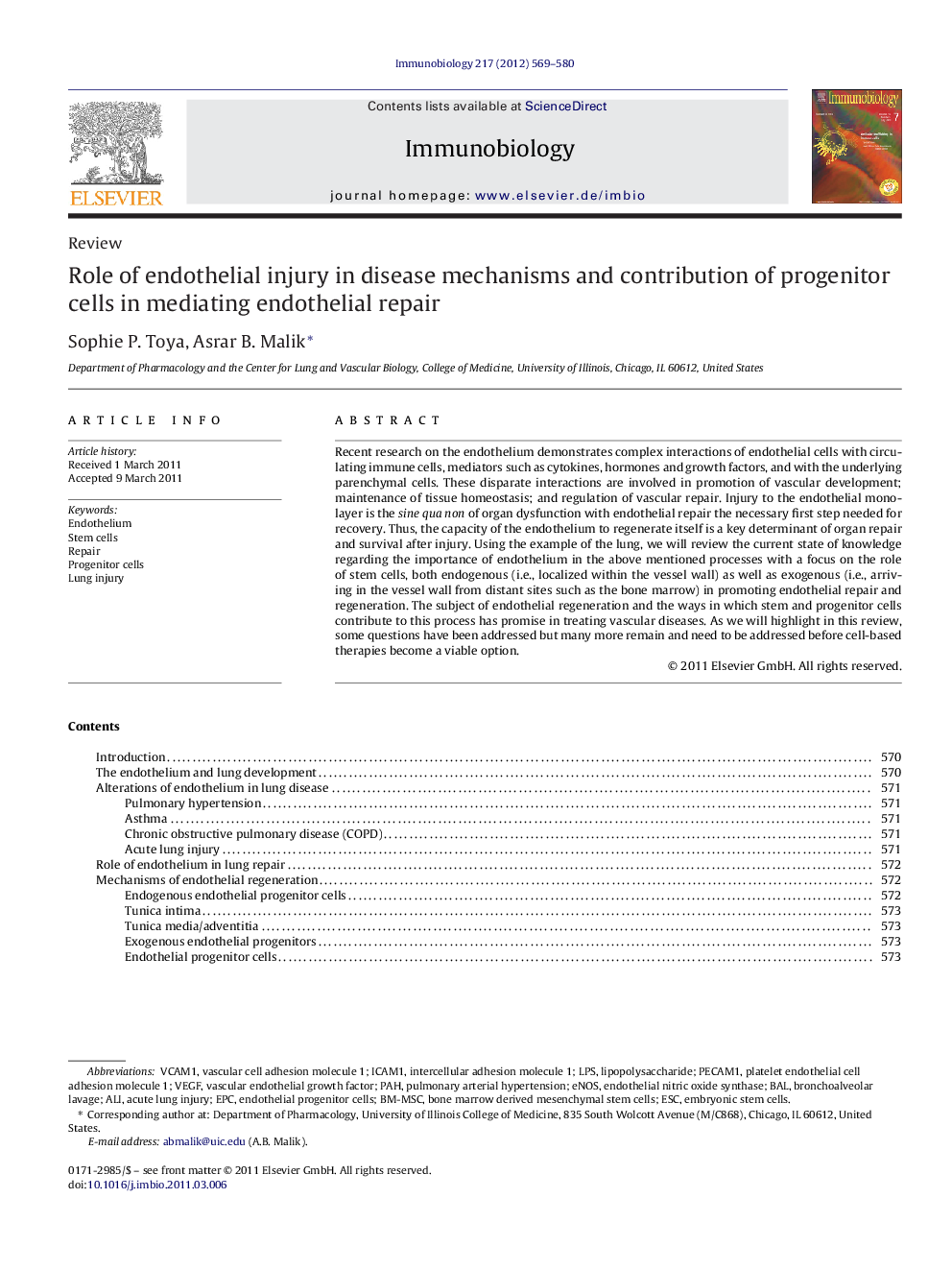| Article ID | Journal | Published Year | Pages | File Type |
|---|---|---|---|---|
| 2183698 | Immunobiology | 2012 | 12 Pages |
Recent research on the endothelium demonstrates complex interactions of endothelial cells with circulating immune cells, mediators such as cytokines, hormones and growth factors, and with the underlying parenchymal cells. These disparate interactions are involved in promotion of vascular development; maintenance of tissue homeostasis; and regulation of vascular repair. Injury to the endothelial monolayer is the sine qua non of organ dysfunction with endothelial repair the necessary first step needed for recovery. Thus, the capacity of the endothelium to regenerate itself is a key determinant of organ repair and survival after injury. Using the example of the lung, we will review the current state of knowledge regarding the importance of endothelium in the above mentioned processes with a focus on the role of stem cells, both endogenous (i.e., localized within the vessel wall) as well as exogenous (i.e., arriving in the vessel wall from distant sites such as the bone marrow) in promoting endothelial repair and regeneration. The subject of endothelial regeneration and the ways in which stem and progenitor cells contribute to this process has promise in treating vascular diseases. As we will highlight in this review, some questions have been addressed but many more remain and need to be addressed before cell-based therapies become a viable option.
